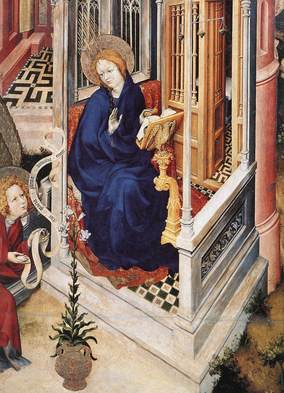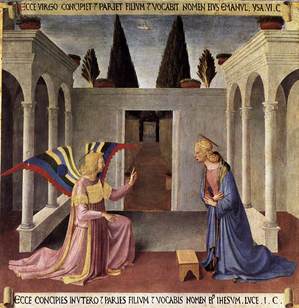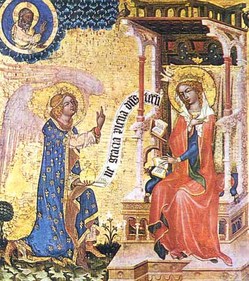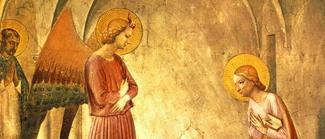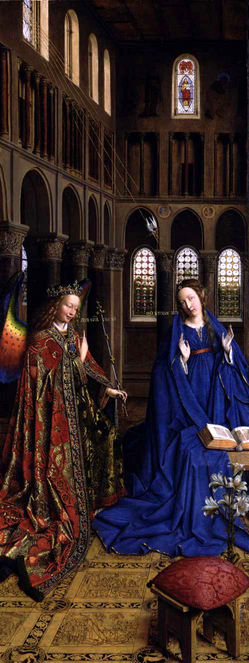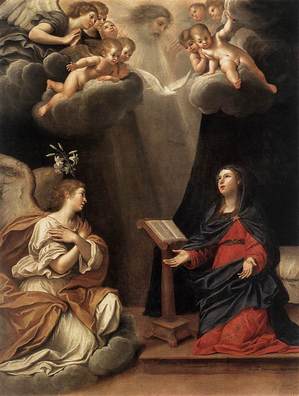 The mystery of the annunciation to Mary is not just a
The mystery of the annunciation to Mary is not just a
mystery of silence. It is above and beyond all that a mystery of grace.
feel compelled to ask ourselves: Why did Christ really want to be born of a
virgin? It was certainly possible for him to have been born of a normal
marriage. That would not have affected his divine Sonship, which was not
dependent on his virgin birth and could equally well have been combined with
another kind of birth. There is no question here of a downgrading of marriage
or of the marriage relationship; nor is it a question of better safeguarding
the divine Sonship. Why then?
and see that the mystery of Mary is prepared for at every important stage in
salvation history. It begins with Sarah, the mother of Isaac, who had been
barren, but when she was well on in years and had lost the power of giving life,
became, by the power of God, the mother of Isaac and so of the chosen people.
process continues with Anna, the mother of Samuel, who was likewise barren, but
eventually gave birth; with the mother of Samson, or again with Elizabeth, the
mother of John the Baptizer. The meaning of all these events is the same: that
salvation comes, not from human beings and their powers, but solely from
God–from an act of his grace.
for Every Day of the Year (1992), 99-100.
